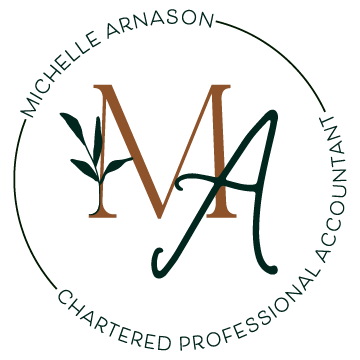
Small Business Budgeting: Unlock Your Business Potential
Budgeting is essential for small business success, providing the financial direction and control needed to achieve your goals. A well-structured budget helps you manage costs, identify funding needs, monitor performance, and support strategic planning. By setting clear financial goals and regularly tracking your expenses, you can ensure your business stays on track and grows sustainably. Need expert support with budgeting? Book a discovery call today to discuss how we can help your business manage its finances and thrive.

Understanding Financial Statements: Key Insights into Your Business Finances
Understanding your financial statements is essential for making informed decisions and guiding your business toward growth and success. Key statements like the balance sheet, income statement, cash flow statement, and statement of retained earnings provide valuable insights into your financial health, profitability, and liquidity. Analyzing these reports helps you assess trends, plan for future growth, and ensure financial stability. Need help interpreting your financial statements? Book a discovery call today to get expert accounting support tailored to your business.

Cash Flow Management Tips for Small Businesses
Cash flow management is crucial for small businesses to maintain financial health and ensure long-term success. By forecasting cash flow, speeding up receivables, controlling expenses, using credit wisely, and building a cash reserve, you can keep your business financially stable and ready for growth. Effective cash flow management can help prevent shortfalls, reduce stress, and give you more control over your financial future. Ready to take charge of your business’s cash flow? Book a discovery call today to learn how professional accounting services can help.

The Benefits of Hiring a CPA: Why Your Business Needs Professional Accounting
As a business owner, hiring a Chartered Professional Accountant (CPA) can be one of your most valuable investments. Learn how a CPA can provide expert financial advice, ensure tax compliance, help with accurate financial reporting, manage cash flow, and support you during a CRA audit. Maximize your business’s growth potential while minimizing risks.

Tax Planning Strategies for Canadian Women Entrepreneurs
As a woman entrepreneur in Canada, effective tax planning is essential for maximizing profitability and securing your financial future. Key strategies to optimize your tax situation include incorporating your business to take advantage of lower corporate tax rates, utilizing the Small Business Deduction to reduce tax on the first $500,000 of active business income, and leveraging available tax credits like the SR&ED credit. Additionally, income splitting can help reduce your overall tax burden by distributing income among family members in lower tax brackets. With the right tax strategy, you can protect your wealth and grow your business more efficiently. Ready to optimize your taxes? Book a discovery call today to craft a personalized tax plan that supports your entrepreneurial goals.

Budgeting for Business Growth: How to Scale Without Financial Strain
Scaling your business requires meticulous financial planning. Start by assessing your current financial position to identify any weaknesses. Forecast your future revenue using historical data and market trends to set realistic expectations. Identify and prioritize growth-related expenses, such as hiring and technology investments. Manage your cash flow effectively with strategies like negotiating payment terms and securing credit. Regularly review your performance against your budget and make adjustments as needed.

Navigating the CRA: How to Prepare for a Business Audit
A CRA business audit might seem intimidating, but proper preparation can make it manageable. Start by keeping accurate, up-to-date records, including receipts and bank statements, as the CRA can review documents up to six years old. Understand common audit triggers and ensure your records support all claims, particularly for large or unusual expenses. Maintain consistent financial practices and review your tax returns thoroughly before submission. If needed, consult a professional accountant to address any concerns and represent you during the audit.
Stay ahead of the game and avoid audit-related stress. Contact us for comprehensive audit support and tax compliance services. Book your discovery call today to learn how we can help you navigate the audit process with confidence.

Top Tax Deductions for Canadian Small Businesses in 2024
As a Canadian small business owner, understanding and leveraging tax deductions can be a game-changer for your financial success. In 2024, various deductions are available that can significantly lower your taxable income, allowing you to reinvest in your business and achieve your financial goals. From home office expenses to marketing costs, this guide explores the top tax deductions you should be aware of to maximize your savings. Join us as we break down each deduction and provide actionable tips to help you navigate the complexities of tax season with confidence!

The Pros and Cons of Operating as a Sole Proprietor in Canada
Choosing a business structure is crucial for Canadian entrepreneurs. Sole proprietorship offers simplicity and control but comes with risks like personal liability and limited capital access. Weigh the pros and cons carefully.

5 Key Financial Reports Every Business Owner Should Understand
As a business owner, understanding your financial performance is essential. In this blog, we delve into five key financial reports: the income statement, balance sheet, cash flow statement, accounts receivable aging report, and accounts payable aging report. By mastering these reports, you'll make informed decisions, manage cash flow effectively, and maintain financial stability, steering your business toward greater success.

Setting Your Course to Success: Creating Financial Goals for Your Business
Setting financial goals is crucial for your business's success, providing clarity, motivation, and a way to measure progress. Start by assessing your financial situation through a review of financial statements and key performance indicators. Set SMART goals—specific, measurable, achievable, relevant, and time-bound. Prioritize the most critical goals and break them down into manageable milestones. Assign responsibilities to ensure accountability and set deadlines to maintain focus. Regularly monitor progress and be ready to adapt as needed.

Common Bookkeeping Mistakes to Avoid: A Roadmap to Financial Accuracy
Accurate bookkeeping is the foundation of sound financial management for businesses of all sizes. Properly maintained financial records not only ensure compliance with tax regulations but also provide valuable insights into your company's financial health. Unfortunately, there are a number of bookkeeping mistakes that are commonly made that often lead to financial discrepancies, compliance issues, and missed opportunities. In this blog post, we'll explore some of the most common bookkeeping mistakes and provide you with a roadmap to financial accuracy.
The Art of Expense Tracking: Tips for Efficient Bookkeeping
Effective expense tracking is a fundamental aspect of sound bookkeeping and financial management for any business, large or small. It not only ensures that you have an accurate picture of your financial health but also helps you make informed decisions. In this blog post, we'll delve into the art of expense tracking and provide you with practical tips to streamline this critical aspect of financial management for your business.

Choosing the Right Bookkeeping Software for Your Small Business
Effective bookkeeping is the cornerstone of financial management for any small business. With the help of modern bookkeeping software, small business owners can streamline financial tasks, improve accuracy, and gain valuable insights into their financial health. However, with a multitude of bookkeeping software options available, selecting the right one can be a daunting task. In this blog post, we will help guide you through the process of choosing the best bookkeeping software for your small business.

Pros and Cons of Outsourcing Payroll: Making the Right Choice for Your Business
Payroll management is a critical function for businesses of all sizes. It involves calculating and disbursing employee wages, ensuring compliance with tax regulations, and keeping accurate records. Many companies will need to decide whether they want to manage payroll in-house, or outsource it to a specialized provider. In this blog post, we'll explore the pros and cons of outsourcing payroll to help you make an informed choice for your business.

Understanding the Canadian Tax Filing Deadlines: A Comprehensive Guide
Tax season in Canada can be a stressful time for individuals and businesses alike. To alleviate some of that stress and ensure you meet your tax obligations without any setbacks, it's essential to have a clear understanding of the Canadian tax filing deadlines. In this comprehensive guide, we'll break down the various tax deadlines in Canada, explain their significance, and offer tips for staying organized and compliant.

New T4/T4A Reporting Requirements for Canadian Employers - Canada Dental Benefit
For employers in Canada, the 2023 tax year introduces new requirements for T4 and T4A reporting that directly impact the Canadian Dental Care Plan.

Key Tips for Entrepreneurs and Small Business Owners
If you've registered a corporation in Alberta or are considering doing so, it's essential to understand the ongoing compliance requirements. One crucial aspect of maintaining your corporation's status is the annual return. In this blog post, we'll unravel the mysteries surrounding Alberta's annual return requirement, why it's important, and how to fulfill it.

Outsourcing vs. In-House Bookkeeping
Managing your small business's financial records is a critical task that can significantly impact your company's success. When it comes to bookkeeping, you have two primary options: outsourcing the task to a professional bookkeeping service or handling it in-house with your own team. Each approach has its own set of advantages and disadvantages. In this blog post, we'll explore the pros and cons of both outsourcing and in-house bookkeeping to help you make an informed decision about which approach best suits your business.

Demystifying Alberta's Annual Return Requirement for Corporation Registration
If you've registered a corporation in Alberta or are considering doing so, it's essential to understand the ongoing compliance requirements. One crucial aspect of maintaining your corporation's status is the annual return. In this blog post, we'll unravel the mysteries surrounding Alberta's annual return requirement, why it's important, and how to fulfill it.
